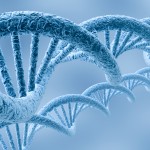Sequenom Patent on Prenatal DNA Test Remains Invalid
 San Diego – Interpretations of a Supreme Court decision led the U.S. Court of Appeals for the Federal Circuit in Washington to refuse to reconsider its decision invalidating a Sequenom Inc., prenatal DNA test patent.
San Diego – Interpretations of a Supreme Court decision led the U.S. Court of Appeals for the Federal Circuit in Washington to refuse to reconsider its decision invalidating a Sequenom Inc., prenatal DNA test patent.
San Diego based Sequenom is a company focused on molecular genetic laboratory work, specializing in prenatal care. Sequenom got a non-invasive prenatal diagnosis patent (U.S. Patent No. 6,258,540), that that was later ruled as not being patent eligible. The court used precedent set by the Supreme Court’s Mayo Collaborative Services v. Prometheus Laboratories in its decision.
Medical and biotechnology patents work to promote progress in life sciences by protecting the financial incentive to spend large amounts of money on research and development. Legal issues arise over what is patentable and what is not.
The U.S. Patent Act (35 U.S. Code §101) states, “Whoever invents or discovers any new and useful process, machine, manufacture, or composition of matter, or any new and useful improvement thereof, may obtain a patent.” The definition of “new” becomes the heart of the argument over patenting genetic material. Medical and biotechnology research deals with naturally occurring materials including genes, biological processes, etc. Research companies argue they can apply for patents because the process of dealing with this naturally occurring material is what is new.
The Supreme Court ruled that naturally occurring gene sequences and products naturally derived from the sequences cannot be patented, while gene sequences created through synthetic processes (not naturally occurring) can be patented. This precedent was used in the first ruling that Sequenom’s claims are not patentable, and was used in the U.S. Court of Appeals for the Federal Circuit decision to uphold the ruling of the earlier court.
Sequenom released a statement saying it is considering an appeal to the U.S. Supreme Court.
This ruling holds potential impact for the biotechnology industry, which fears a lack of patent protection will negatively impact investments in biomedical research. The courts, in contrast, argue too much patent protection limits discovery and innovation by allowing one patent holder to hold rights to a given process or genetic material.













